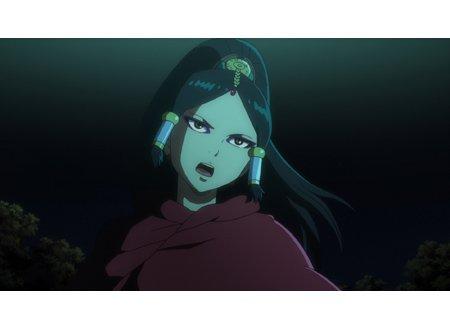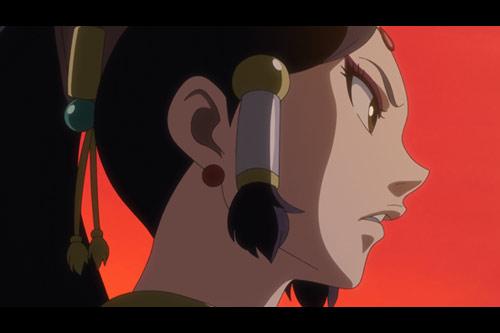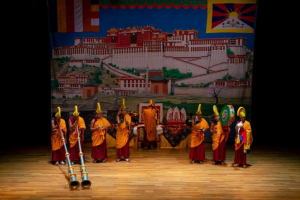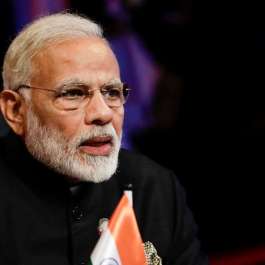The strong and beautiful Migaila is perhaps the single most daring creative liberty taken with the story of the Buddha. First of all, there is no Migaila in the canonical accounts of the Buddha’s teen years, rendering her character strictly fictional. Migaila is also the future Buddha’s first true love, a primus inter pares among outcasts who understands the limitations of Siddhartha’s higher caste. Nevertheless, she listens to her heart and romances him. She is expertly presented as an active, intelligent, affective force in Siddhartha’s life, driving him to become a better and wiser person.
But most importantly, it is actually Migaila who enlightens Siddhartha to the Four Noble Truths, by taking him through the streets and showing him an old man, a sick man, a dead man and the truth of suffering, hence supplanting everything that the Buddhist canon and even the original manga depict about the Prince’s realization of the Four Noble Truths. Since this part is animated, the narrative upheaval occurs fairly quickly but is the most important one in the entire film.
Migaila is a passionately devoted to Siddhartha, blaming neither his caste nor his helpless situation for her gruesome fate and eventual exile. In the manga, their relationship is even more intense and it is slightly disappointing some important parts were omitted. For example, in the manga she meets him as an actual bandit, trying to rob him, only to later realize she has fallen in love with him. They attempt to trick the palace authorities by having Migaila dress up as a boy and fight in a rigged contest to claim the Prince for herself (Siddhartha plans to lose when it is his turn to duel her). The collaboration between prince and bandit fails, and she is banished. Her capture is much simpler in the anime, being simply surrounded with superior numbers by a river. Her public humiliation is gruesome, in which she is beaten, lashed, before finally suffering the indignity of having her eyes branded out (same as in the manga).
As she is forced out of the city, staggering from the agony, her heartfelt confession of happiness at having loved the Prince and her cries for him to become a great king are incredibly touching. If there is any comfort, she at least survives, and as alluded to in the last moments of the film, will be making a comeback in the sequels.
Click here to go to Chapra’s profile.
Click here to go to Bandhaka’s profile.
Click here to go to Tata’s profile.
Click here to return to the main review.
















